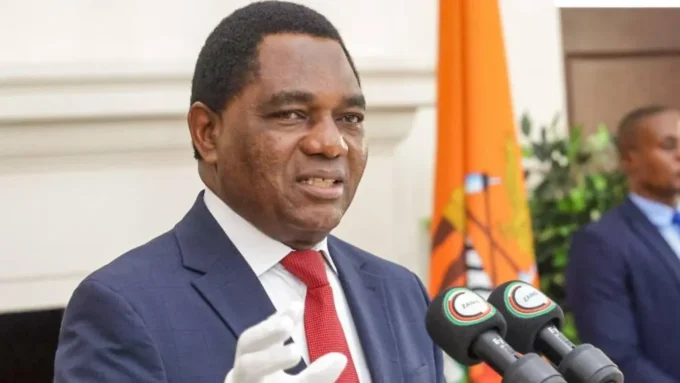Rwanda-Backed Rebels Expand Control in Eastern Congo, UN Warns of Wider Offensive
Rwandan-backed rebels from the M23 group now dominate large portions of eastern Democratic Republic of Congo (DRC) and are threatening to expand their offensive westward into neighboring provinces, the United Nations has warned.
During a briefing to the UN Security Council on Thursday, Bintou Keita, the UN’s special representative to Congo, described the “alarming situation” in the region. She highlighted the M23 rebels’ establishment of an administration in South Kivu and the appointment of a “mining delegate” in North Kivu, connecting decades of conflict in eastern Congo to the illegal exploitation of its vast mineral resources.
Keita also emphasized the dire humanitarian consequences of the M23 offensive, which has displaced tens of thousands of civilians. Reports detail widespread human rights abuses, including over 100 summary executions, rape, and the forced recruitment of children.
Despite efforts by regional and international leaders, including a recent ceasefire agreement between the presidents of Congo and Rwanda in Qatar, the fighting persists. Keita called for the immediate appointment of an African Union mediator to spearhead negotiations.
According to Keita, M23 rebels currently control extensive areas of North and South Kivu and are positioning themselves to expand into Tshopo and Maniema provinces, which lie west of the Kivus. These regions are significant due to their size and strategic location. The rebels have reportedly expressed ambitions to march as far as Kinshasa, the DRC’s capital, which lies roughly 1,600 kilometers (1,000 miles) to the west.
M23 is one of approximately 100 armed groups active in the mineral-rich eastern DRC, where conflict has fueled one of the world’s most severe humanitarian crises. Over seven million people have been displaced by the violence.
The roots of the current crisis trace back to the 1994 Rwandan genocide, during which ethnic Hutu extremists killed more than 800,000 ethnic Tutsis and moderate Hutus. Following the genocide, thousands of Hutus fled to neighboring Congo. The M23 rebels, largely comprised of Congolese ethnic Tutsis, first rose to prominence in 2012 when they seized Goma, the largest city in eastern Congo, before retreating under international pressure.
In recent years, the M23 has regained strength. A UN report last year alleged that between 3,000 and 4,000 Rwandan government forces were operating alongside the group in eastern Congo. This January, M23 launched a major offensive against Congolese government forces, securing control over most of the Kivus.
At the UN meeting, Congo’s Ambassador Zénon Mukongo Ngay accused Rwanda of failing to honor ceasefire agreements and called on the international community to intensify efforts for a peaceful resolution. He commended countries, including the United States, United Kingdom, Germany, Canada, and members of the European Union, for imposing sanctions on Rwanda.
Rwanda, however, denies the presence of its troops in Congo. Foreign Minister Olivier Nduhungirehe defended Rwanda’s “defensive measures” along its border with Congo, stating that they would remain in place until a credible framework for long-term security is established.
The situation remains volatile, with the potential for further escalation threatening regional stability and exacerbating the humanitarian crisis.














Leave a comment